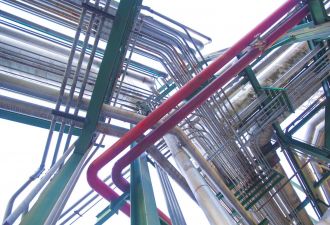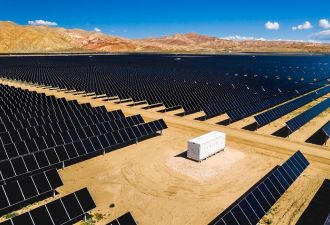Throughout the Interstate Renewable Energy Council's interconnection blog series, we have discussed best practices for the "rules of the road" in interconnection, from increasing transparency, to fairly allocating system upgrade costs, to integrating energy storage into interconnection procedures. And one thread connecting most of the topics we’ve covered is that there is nearly always a chance for disagreements to arise, even with best practices in place.
Although disputes can pop up anywhere, in IREC’s experience, they most commonly arise around timeline compliance and the identification of and cost estimates for system upgrades necessary to accommodate project. But whatever the conflict, effective dispute resolution is key to ensuring the interconnection process runs smoothly and efficiently for all.
Including clear dispute resolution provisions within interconnection procedures is a critical first step. As we explained in a previous post, however, when a conflict arises, developers may be hesitant to pursue a formal complaint because they need to maintain good working relationships with the utilities. But what other option do they have?
To address this issue, policymakers can require -- or at least provide procedures that encourage -- the parties to attempt to resolve the problem informally before bringing a formal complaint at the relevant regulatory body. Some states have done this by establishing rules that allow the developer and utility to first attempt mediation of their conflict with a neutral third party before pursuing a formal complaint.
For example, Minnesota developed an interconnection dispute resolution process as part of its community solar gardens program. The process requires the utility and the developer to first present their dispute to an independent engineer, who reviews the issue and makes a decision. The parties can either accept the independent engineer’s resolution of the dispute or can appeal to the commission. Having a neutral mediator with a technical background in this situation can be extremely beneficial, because most disputes in interconnection involve technical issues.
In Minnesota, independent engineers have helped to resolve disputes about technical studies, upgrade necessity or costs, cost certainty and project locations. IREC and our local partners have suggested that extending this process to all interconnection applicants may be appropriate, as the commission considers broader interconnection reforms in the state.
Similarly, Massachusetts requires that if disputing parties can’t resolve their problems through good-faith negotiation, a party must then present its complaint to a neutral ombudsperson, who is an employee of the Department of Public Utilities and who has relevant expertise. After review of the parties’ materials and the ombudsperson’s own investigation, the ombudsperson will propose a resolution, which is not binding on the parties (who could go on to pursue a more formal mediation and arbitration process).
Even though the ombudsperson’s decisions are not binding, this procedure has been highly effective at resolving disputes without the need for a formal complaint. During a one-year trial period, the ombudsperson had resolved over 25 disputes and the department had received extensive positive feedback. The department considered this to be an "unqualified success" and has continued the role indefinitely.
California also defines alternate avenues to dispute resolution in its interconnection procedures. For conflicts over timeline compliance, an aggrieved party may bring its concern to the utility’s designated ombudsperson for resolution. If the ombudsperson can’t help the parties reach an agreement, the parties can request mediation through the California Public Utilities Commission.
If the dispute is over an issue other than timeline compliance, the parties can choose to seek mediation instead of pursuing a formal complaint. The rule still allows any party to file a formal complaint at any time, but in reality, the informal routes available tend to be more appealing and effective for both applicants and utilities.
By encouraging and providing a clear process for less formal dispute resolution, these states give parties options to avoid the time, expense, and potential for conflict inherent in formal proceedings. This is an attractive option, as very few people want to become embroiled in a contentious and protracted dispute -- better to solve the problem and move on with the project’s development, saving time and money.
Clear processes for informal dispute resolution can reduce the number of formal complaints filed with commissions. The mere fact that parties have a set procedure to resolve a dispute before filing a formal complaint can be all that is needed to incentivize utilities and developers to work together constructively, instead of prematurely diving into an adversarial process.
Dispute resolution is essential to smooth interconnection processes, but it is just one of the many best practices or new solutions that are necessary to ensure more and more distributed generation and other distributed energy resources are interconnected and effectively integrated into the grid. As interconnection procedures improve, the frequency of disputes will hopefully decline.
Imagine: With clear and enforceable timelines, it will be less likely that parties will miss milestones and need to resort to informal or formal dispute resolution. And with improved transparency around grid information and movement toward integrated distribution planning, utilities can direct projects to grid locations prime for interconnection -- thereby avoiding unanticipated upgrade costs or study delays that could lead to conflict.
IREC has long worked to help states shape interconnection policies and has learned a lot from that process. We’ve drawn on that experience to bring you this blog series, which has highlighted some of the most important and cutting-edge policy issues facing interconnection today. We look forward to more states adopting these recommended policies, and we will continue to draw on our experience to identify the best practices that can help states across the country achieve their distributed energy policy dreams.
Read the full interconnection blog series here: part one, part two, part three, part four, part five, part six, part seven and part eight.
***
Erica McConnell is special counsel and Laura Beaton is an associate attorney at Shute, Mihaly & Weinberger, attorneys for the Interstate Renewable Energy Council.




